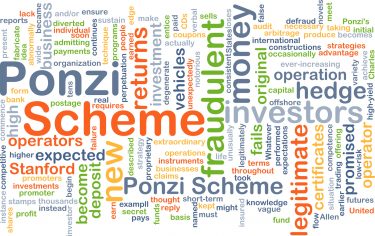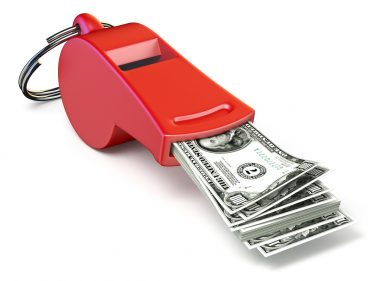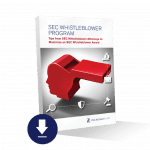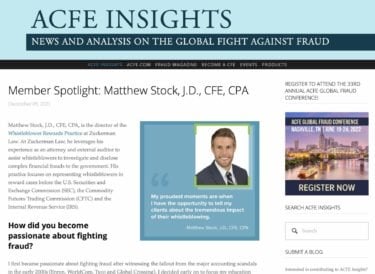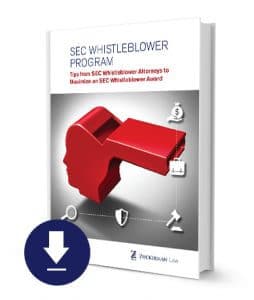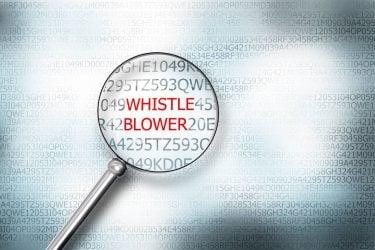
Whistleblower Attorney’s Guide to False Claims Act and NDAA Whistleblower Protection Laws
The False Claims Act (“FCA”) protects employees, contractors, and agents who engage in protected activity from retaliation in the form of their being “discharged, demoted, suspended, threatened, harassed, or in any other manner discriminated against in the terms and conditions of employment.” 31 U.S.C. § 3730(h)(1).
The whistleblower protection provisions of the National Defense Authorization Act (“NDAA”) protect whistleblowers who report waste, fraud or abuse.
If you have suffered retaliation for whistleblowing, contact our experienced whistleblower lawyers today by calling us at 202-262-8959 or clicking here.






Does the False Claims Act protect whistleblowers against retaliation?
Yes, the False Claims Act (“FCA”) protects employees, contractors, and agents who engage in protected activity from retaliation in the form of their being “discharged, demoted, suspended, threatened, harassed, or in any other manner discriminated against in the terms and conditions of employment.” 31 U.S.C. § 3730(h)(1).
False Claims Act Whistleblower Protection LawWhat is protected whistleblowing or protected conduct under the False Claims Act Retaliation Provision?
The FCA protects:
- “lawful acts . . . in furtherance of an action under [the FCA]”; and
- “other efforts to stop 1 or more [FCA] violations.” 31 U.S.C. § 3730(h)(1).
Recent cases have interpreted this protected activity to include:
- internal reporting of fraudulent activity to a supervisor;
- steps taken in furtherance of a potential or actual qui tam action;
- efforts to remedy fraudulent activity or to stop an FCA violation; and
- refusal to violate the False Claims Act.
Does the False Claims Act anti-retaliation law protect efforts to stop a government contractor from defrauding the government?
Yes: the FCA protects whistleblowers who try to prevent one or more violations of the FCA, as long as they have an objectively reasonable belief that their employer is violating, or will soon violate, the FCA. Case law has clarified that efforts to stop an FCA violation are protected even if they are not meant to further a qui tam claim. For example, refusing to falsify documentation that will be submitted to Medicare is protected.
Is False Claims Act Whistleblower Protection Limited to Disclosures About the Whistleblower’s Employer?
No. The whistleblower protection provision of the False Claims Act (FCA) protects “lawful acts done by the employee, contractor, agent or associated others in furtherance of an action under [the FCA] or other efforts to stop 1 or more violations of [the FCA].”
Recently the Fourth Circuit held in O’Hara v. Nika Technologies, Inc., 2017— F.3d —-2017 WL 6542675 (4th Cir. Dec. 22, 2017):
The plain language of § 3730(h) reveals that the statute does not condition protection on the employment relationship between a whistleblower and the subject of his disclosures. Section 3730(h) protects a whistleblower from retaliation for “lawful acts done … in furtherance of an action under this section.” 31U.S.C. § 3730(h)(1). The phrase “an action under this section” refers to a lawsuit under §3730(b), which in turn states that “[a] person may bring a civil action for a violation of [the FCA].” Id. §3730(b)(1). Therefore, § 3730(h) protects lawful acts in furtherance of an FCA action. This language indicates that protection under the statute depends on the type of conduct that the whistleblower discloses—i.e., a violation of the FCA—rather than the whistleblower’s relationship to the subject of his disclosures.
Does the False Claims Act retaliation law protect internal reporting to a government contractor or grantee?
Yes, case law has clarified that the act of internal reporting itself suffices as both the effort to stop the FCA violation and the notice to the employer that the employee is engaging in protected activity.
Does the False Claims Act prohibit retaliation against an employee for the employee’s refusal to participate in a fraudulent scheme?
Yes. As the Second Circuit held in Fabula v. American Medical Response, Inc., an employee’s refusal to sign fraudulent reimbursement documentation constitutes protected whistleblowing. There the court notes that “[t]here is, at best, a hair’s-breadth distinction between complaining internally that a practice is illegal under the FCA and advising a supervisor of one’s refusal to engage in that illegal practice.”
What acts of retaliation are prohibited by the False Claims Act anti-retaliation provision?
The False Claims Act prohibits an employer from discharging, demoting, suspending, threatening, harassing, or in any other manner discriminating against a whistleblower. Prohibited retaliation includes:
- oral or written reprimands;
- reassignment of duties;
- constructive discharge; and
- retaliatory lawsuits against whistleblowers.
What type of constructive discharge is prohibited by the False Claims Act anti-retaliation law?
In Smith v. LHC Group, Inc., 2018 WL 1136072 (March 2, 2018), the Sixth Circuit held that where an employer ignores an employee’s disclosures about fraud on the government and the employee is reasonably concerned that he may be charged with fraud by the government if he remains in the job, the employee’s resignation is an actionable constructive discharge. In other words, a jury could find that the employer’s alleged fraudulent behavior plus the employee’s moral conscience and reasonable fear of being accused of participating in the employer’s fraud is enough to justify quitting.
What must a whistleblower prove to prevail in a False Claims Act whistleblower retaliation case?
A whistleblower must prove that:
- the whistleblower engaged in protected activity;
- the whistleblower’s employer took an adverse employment action against him or her; and
- the adverse employment action was taken because of the whistleblower’s protected activity. 31 U.S.C. § 3730(h)(1).
What damages can a whistleblower recover under the whistleblower-protection provision of the False Claims Act?
A whistleblower who prevails in an anti-retaliation action under the FCA may recover:
- reinstatement;
- double back pay, plus interest;
- special damages, which include litigation costs, reasonable attorney’s fees, emotional distress, and other noneconomic harm from the retaliation. 31 U.S.C. § 3730(h)(2).
Recently, a jury awarded more than $2M to a whistleblower in an FCA retaliation case. As there is no cap on compensatory damages, FCA retaliation plaintiffs can potentially recover substantial damages for the retaliation that they have suffered.
What is the statute of limitations for a False Claims Act Whistleblower Retaliation Case?
The statute of limitations for FCA retaliation claims is three years from the date on which the retaliation occurred. FCA retaliation claims can be brought directly in federal court; there is no administrative exhaustion requirement.
False Claims Act Qui Tam Actions
- What types of false claims are prohibited by the False Claims Act?
- What is the first-to-file bar in False Claims Act qui tam cases?
- What is the requirement to file a False Claims Act qui tam action under seal?
- What is the statute of limitations for a False Claims Act qui tam action?
- What is the public disclosure bar in the False Claims Act?
- What is materiality under the False Claims Act?
- What is “Scienter” Under the False Claims Act?
- Is a Violation of the Anti-Kickback Law Also a Violation of the False Claims Act?
- Does the False Claims Act Prohibit Bid Rigging?
- Does the False Claims Act Prohibit Fraudulent Inducement of a Contract?
Whistleblower Protections for Employees of Government Contractors and Grantees
- Does the False Claims Act prohibit whistleblower retaliation?
- Are federal employees protected from whistleblower retaliation?
- Where can a federal employee report waste, fraud or abuse?
- Is an attempt to stop fraud protected under the False Claims Act?
- Will I get a reward for reporting fraud being committed by my employer?
- Must a whistleblower disclose unequivocal unlawful conduct to be protected?
- Is threatening a countersuit against a whistleblower an act of retaliation?
- Is a lawsuit against a whistleblower actionable retaliation?
- What causal connection must be established to prove whistleblower retaliation?
- How does a whistleblower prove retaliation?
- Can I use confidential documents from my job to prove a whistleblower retaliation case?
- Am I permitted to make secret recordings at work to use in a whistleblower case?
- Is knowledge of protected conduct and close temporal proximity sufficient to prove retaliation?
- What causal connection must be established to prove whistleblower retaliation?
- What do employers typically demand in the settlement of an employment case?
Guide to NDAA Whistleblower Protection Law
For more information about whistleblower protections for employees of government contractors and grantees, including Department of Defense contractors, see our Practical Law Practice Note titled Whistleblower Protections Under the National Defense Authorization Act. This Practice Note surveys the legal protections for employees of federal contractors, subcontractors, and grantees that receive federal funds who report waste, fraud, or abuse involving federal funds, a violation of law, rule, or regulation related to a federal contract, or a substantial and specific danger to public health or safety.
In addition, the outline explains the procedures that govern the filing, investigation and adjudication of National Defense Authorization Act (NDAA) whistleblower retaliation claims.
Topics covered include:
- Protected whistleblowing under the NDAA.
- The scope of coverage of the NDAA’s whistleblower protection provisions.
- The reasonable belief standard governing NDAA protected whistleblowing.
- Proving “contributing factor” causation
- The same-decision affirmative defense
- Remedies or damages available to prevailing NDAA whistleblowers.
Experienced False Claims Act Whistleblower Retaliation and Whistleblower Protection Lawyers
The experienced whistleblower attorneys at leading whistleblower law firm Zuckerman Law have substantial experience representing whistleblowers disclosing fraud and other wrongdoing at government contractors and grantees. To schedule a free preliminary consultation, click here or call us at 202-262-8959.
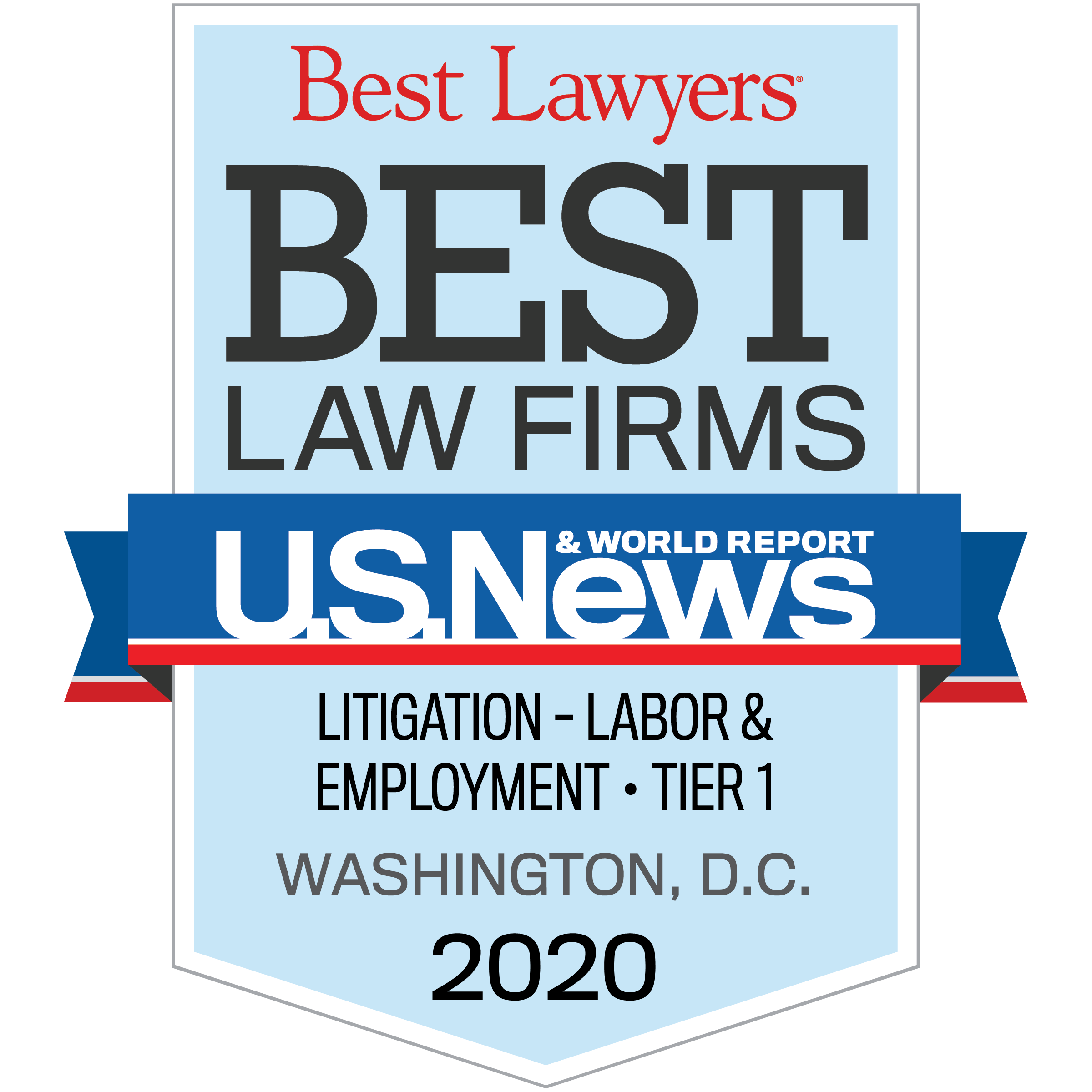
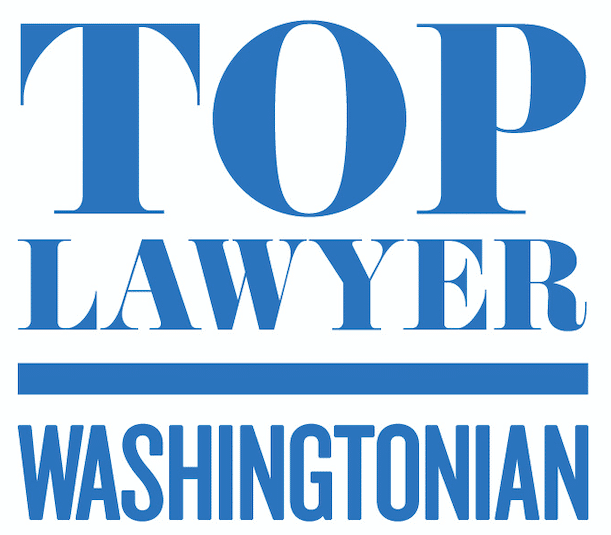
![]()
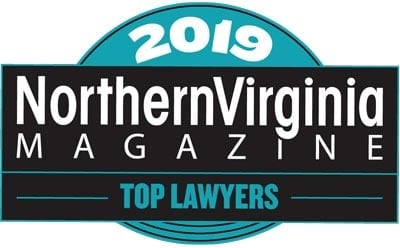
Our experience includes:
- Representing whistleblowers in NDAA retaliation claims before the Department of Defense, and Department of Homeland Security, Department of Justice Offices of Inspectors General.
- Litigating False Claims Act retaliation cases.
- Representing qui tam relators in False Claims Act cases.
- Representing whistleblowers disclosing fraud on the government in Congressional investigations.
- Training judges, senior Office of Inspector General officials, and federal law enforcement about whistleblower protections.
In addition, we have substantial experience representing whistleblowers under the Whistleblower Protection Act (WPA) and enforcing the WPA, the law that the NDAA whistleblower provisions are based upon. Jason Zuckerman served as Senior Legal Advisor to the Special Counsel at OSC, where he worked on the implementation of the Whistleblower Protection Enhancement Act and oversaw several high-profile investigations of whistleblower retaliation claims and whistleblower disclosures.
We have also written extensively about whistleblower protections for employees of government contractors and grantees, including the following articles and blog posts:
- Boosting Contractor Employee Whistleblower Protections, Law 360 (December 2016)
- New Tools to Combat Whistleblower Retaliation, Taxpayers Against Fraud Education Fund Quarterly Review, Vol. 57 (October 2010)
- GAO Report Calls for Improvements in Government Contractor Whistleblower Protections
- False Claims Act Retaliation Decision Underscores Broad Scope of FCA Whistleblower Protection
- NDAA Provides Robust Whistleblower Protection
- FAR Amendment Bars Agencies from Subsidizing Whistleblower Retaliation
- NDAA Contractor Whistleblower Protection Law Highly Effective in Rooting Out Fraud
- Congress Enacts Anti-Gag Provision in Cromnibus Spending Bill
- Whistleblower Lawyer Jason Zuckerman Will Speak About False Claims Act Litigation at Taxpayers Against Fraud Conference
- Whistleblower Protections Under the Whistleblower Protection Act, Practical Law (October 2016)
- Whistleblower Lawyer Jason Zuckerman Quoted in National Law Journal
- Whistleblower Lawyer Jason Zuckerman Quoted About Federal Employee Whistleblower Rights
- Washington Post Quotes Whistleblower Attorney Jason Zuckerman About Chilling Effect of Insider Threat Program
- How to foster a more ethical culture
- Whistleblower Lawyer Jason Zuckerman Quoted About MacLean Whistleblower Protection Act Case
- Trump Questionnaire Raises Concerns About Retaliation Against Energy Department Staff
- CFPB official wants to silence a whistleblower before he can talk to Congress
whistleblower_lawyers_012017_infographic
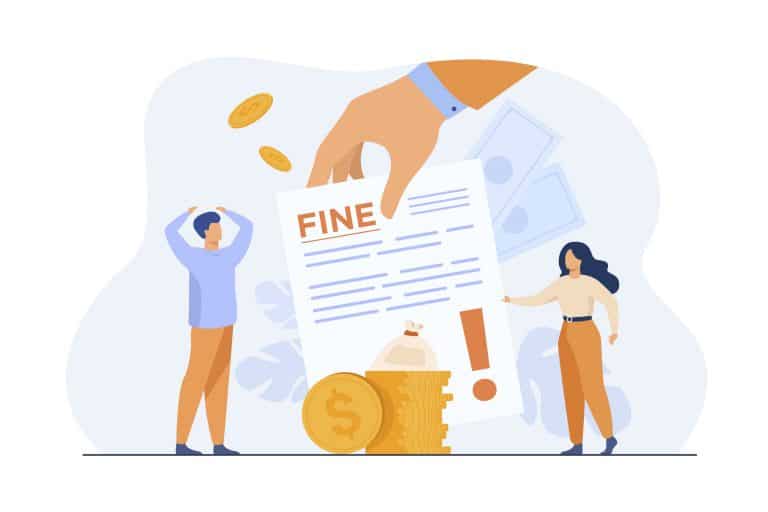
SEC Sanctions: Whistleblower Reference Guide
The SEC Whistleblower Program offers awards to individuals who provide original information that leads to enforcement actions with total civil penalties in excess of $1 million. A whistleblower may receive an award of between 10-30 percent of the total sanctions imposed. The table below identifies some of the largest SEC sanctions.
In FY 2021, the SEC received more than 12,200 whistleblower tips—the largest number of whistleblower tips received in a fiscal year. The most common violations reported by whistleblowers were Manipulation (25%), Corporate Disclosures and Financials (16%), Offering Fraud (16%), Trading and Pricing (6%), and Initial Coin Offerings and Cryptocurrencies (6%).
Sucess of the SEC Whistleblower Program
Since the Dodd-Frank Act went into effect, the SEC Whistleblower Office has awarded more than $1.3 billion to whistleblowers. The information and assistance provided by the whistleblowers who received awards under the program led to successful SEC enforcement actions in which over $5 billion in financial sanctions was ordered.
As discussed in our articles, the SEC Whistleblower Program has become a very effective enforcement tool for the SEC. But very few whistleblowers have received awards, which underscores the importance of having experienced counsel represent a whistleblower effectively at the SEC.
- MarketWatch: More than 33,000 tips, $2.5 billion in financial remedies and $500 million in awards to investors — the SEC’s whistleblower program turns 10 years old today
- Going Concern: Here Are 6 Reasons Why the SEC Whistleblower Program Is Successful
- National Law Review: 5 Ways that Experienced SEC Whistleblower Law Firms Can Effectively Advocate for Whistleblowers
- D&O Diary: How the SEC Whistleblower Program Has Changed Corporate Compliance and SEC Enforcement
- Forbes: One Billion Reasons Why The SEC Whistleblower-Reward Program Is Effective
Washington DC Lawyers Representing SEC Whistleblowers
The whistleblower lawyers at Zuckerman Law represent whistleblowers nationwide and abroad concerning a wide variety of securities law violations that are eligible for SEC whistleblower awards, including:
- Accounting fraud;
- Inadequate internal controls;
- Investment fraud;
- Insider trading;
- EB-5 investment fraud;
- Foreign bribery payments and other violations of the Foreign Corrupt Practices Act;
- Market manipulation schemes;
- Unregistered broker-dealers;
- Investment adviser fraud;
- Offering fraud and Ponzi schemes;
- Inadequate disclosures in communications with investors;
- Deceptive non-GAAP financial measures; and
- Violations of auditor independence rules.
If you have questions about the SEC Whistleblower Program, contact the experienced SEC whistleblower attorneys at Zuckerman Law for a free, confidential consultation about your case by calling 202-262-8959.
The leading SEC whistleblower lawyers at Zuckerman Law have extensive experience representing corporate whistleblowers at the SEC. U.S. News and Best Lawyers® have named Zuckerman Law a Tier 1 firm in Litigation – Labor and Employment in the Washington DC metropolitan area in the 2021 edition “Best Law Firms.”
| Defendants | Date | Sanction | Violations |
|---|---|---|---|
| UBS Securities LLC, et al. | Dec. 2008 | $23 billion | UBS misled investors regarding the liquidity risks associated with auction rate securities (ARS) that they underwrote, marketed and sold. |
| Merrill Lynch, Citigroup, Wachovia, Bank of America, RBC, Deutsche Bank | Aug. 2008 | $20 billion | The banks misrepresented to customers that ARS were safe, highly liquid investments equivalent to money market instruments and cash. The $20 billion represents the combined sanctions against the banks. |
| WorldCom Inc. | July 2003 | $2.3 billion | WorldCom misled investors by overstating its income by approximately $9 billion as a result of undisclosed and improper accounting. Specifically, WorldCom reduced its operating expenses by improperly releasing certain reserves held against operating expenses and improperly reduced its operating expenses by recharacterizing certain expenses as capital assets. |
| American International Group, Inc. (AIG) | Feb. 2006 | $1.6 billion | AIG was charged with improper accounting, bid rigging and practices involving workers’ compensation funds. According to the SEC's complaint, AIG's entered into two sham reinsurance transactions with General Re Corporation that were solely designed to falsely inflate AIG’s loss reserves by $500 million in order to silence analyst criticism that AIG’s reserves had been declining. |
| Adelphia Communications Corporation, et al. | Apr. 2005 | $715 million | According to the SEC's compliant, Adelphia: (1) fraudulently excluded billions of dollars in liabilities from its consolidated financial statements by hiding them on the books of off-balance sheet affiliates; (2) falsified operating statistics and inflated earnings to meet Wall Street estimates; and (3) concealed rampant self-dealing by the Rigas family, including the undisclosed use of corporate funds for purchases of Adelphia stock and luxury condominiums. |
| CR Intrinsic Investors | Mar. 2013 | $601 million | CR Intrinsic Investors allegedly participated in an insider trading scheme involving a clinical trial for an Alzheimer's drug. According to the SEC's complaint, the hedge fund advisory firm discovered negative results about the drug's clinical trial two weeks before they were made public. The firm then tipped several hedge funds about the negative results who subsequently sold off more than $960 million of the securities. The settlement is the largest ever in an insider trading case. |
| Goldman, Sachs & Co., Fabrice Tourre | July 2010 | $550 million | Goldman Sachs misled investors in a subprime mortgage product just as the U.S. housing market was starting to collapse. Specifically, the SEC alleged that Goldman misstated and omitted key facts regarding a synthetic collateralized debt obligation (CDO) it marketed that hinged on the performance of subprime residential mortgage-backed securities. |
| BP p.l.c. | Nov. 2012 | $525 million | BP mislead investors while its Deepwater Horizon oil rig was gushing into the Gulf of Mexico by significantly understating the flow rate in multiple reports filed with the SEC. The oil and gas company made fraudulent public statements about the flow rate of oil per day (5,000 barrels/day) despite its own internal data indicating that the flow rate could significantly higher (146,000 barrels/day). |
| Federal National Mortgage Association | May 2006 | $400 million | Fannie Mae engaged in a financial fraud involving multiple violations of Generally Accepted Accounting Principles ("GAAP") in connection with the preparation of its annual and quarterly financial statements. These violations falsely portrayed stable earnings growth and reduced income statement volatility in order to maximize bonuses and achieve forecasted earnings. |
| INVESCO Funds Group, Inc. (IFG), et al. | Oct. 2004 | $377 million | IFG facilitated widespread market timing trading in mutual funds with which each entity was affiliated. According to the SEC's order, "IFG entered into undisclosed market timing agreements with over 40 individuals and entities, which allowed them to market time certain Invesco funds... At their height, the market timers held over $1 billion of the assets invested in the Invesco funds and made excessive exchanges and redemptions totaling approximately $58 billion. In the aggregate, the market timing trades made under the agreements were detrimental to the Invesco funds’ shareholders." |
| Banc of America Securities LLC, et al. | Feb. 2005 | $375 million | Banc of America Securities LLC allegedly entered into improper and undisclosed agreements that allowed favored large investors to engage in rapid short-term securities trading known as market timing. |
| Siemens AG | Dec. 2008 | $350 million | Siemens violated the FCPA by engaging in a widespread and systematic practice of paying bribes to foreign government officials to obtain business. |
| Merendon Mining (Nevada) Inc., et al. | Nov. 2010 | $310 million | The SEC's complaint alleged that they architected a Ponzi scheme that persuaded more than 3,000 investors across the U.S. and Canada to invest their savings, retirement funds and even home equity. |
| Time Warner Inc., et al. | Mar. 2005 | $300 million | Time Warner allegedly was materially overstating online advertising revenue and the number of its Internet subscribers. |
| J.P. Morgan, et al. | Nov. 2012 | $297 million | Misleading investors in offerings of residential mortgage-backed securities |
| Citigroup Global Markets, Inc., et al. | Oct. 2011 | $285 million | Citigroup mislead investors about a $1 billion collateralized debt obligation (CDO) called Class V Funding III (Class V III). |
| Prudential Equity Group, LLC, et al. | Aug. 2006 | $270 million | According to the SEC's press release, Prudential's registered representatives defrauded mutual funds by concealing their identities, and those of their customers, to evade mutual funds' prospectus limitations on market timing. |
| Bear Stearns & Co., Inc. | Mar. 2006 | $250 million | Securities fraud for facilitating unlawful late trading and deceptive market timing of mutual funds by its customers and customers of its introducing brokers. |
| Qwest Communications International, Inc. | Oct. 2004 | $250 million | Qwest fraudulently recognized over $3.8 billion in revenue and excluded $231 million in expenses as part of a multi-faceted fraudulent scheme to meet optimistic and unsupportable revenue and earnings projections. |
| AXA Rosenberg Group, LLC, et al. | Feb. 2011 | $242 million | Securities fraud for concealing a significant error in the computer code of the quantitative investment model that they use to manage client assets. The error caused $217 million in investor losses. |
| Computer Associates International, Inc., et al. | Sep. 2004 | $225 million | Securities fraud charges for allegedly keeping its books open to record revenue from contracts executed after the quarter ended in order to meet Wall Street quarterly earnings estimates. |
| Morgan Keegan & Company, et al. | June 2011 | $200 million | Fraud charges related to subprime mortgage-backed securities. Specifically, it failed to employ reasonable pricing procedures and nevertheless published the inaccurate daily NAVs and sold shares to investors based on the inflated prices. |
| Roys Poyiadjis, Lycourgos Kyprianou, et al. | June 2005 | $200 million | According to the SEC's complaint, AremisSoft issued fraudulent statements in public filings and press releases, including reporting millions of dollars in sales to entities that either did not exist as operating businesses or did not purchase product from AremisSoft. |
| JPMorgan Chase & Co. | Sep. 2013 | $200 million | Financial fraud in JPMorgan's portfolio of credit derivatives known as the Synthetic Credit Portfolio. |
| Bristol-Myers Squibb Company | Aug. 2004 | $150 million | Allegedly overstated sales and earnings to meet or exceed financial projections. |
| J.P. Morgan Chase & Co. | July 2003 | $135 million | Aiding and abetting Enron Corp.'s securities fraud |
| Credit Suisse | Nov. 2012 | $133 million | Misleading investors in mortgage offerings related to the financial crisis of 2008. |
| Mizuho Financial Group, et al. | July 2012 | $127 million | Allegedly misleading investors in a collateralized debt obligation (CDO) by using “dummy assets” to inflate the deal’s credit ratings. |
| Royal Dutch Petroleum Company | Aug. 2004 | $120 million | Shell overstated proved reserves reported in its 2002 Form 20-F by 4.47 billion barrels of oil equivalent. |
SEC Whistleblower Bounties
SEC Whistleblower Lawyers’ Tips to Qualify for an SEC Whistleblower Award
For more information about the SEC whistleblower process, see the SEC’s investor bulletin on SEC investigations.
SEC Whistleblower Protection Against Retaliation
whistleblower_lawyers_012017_infographic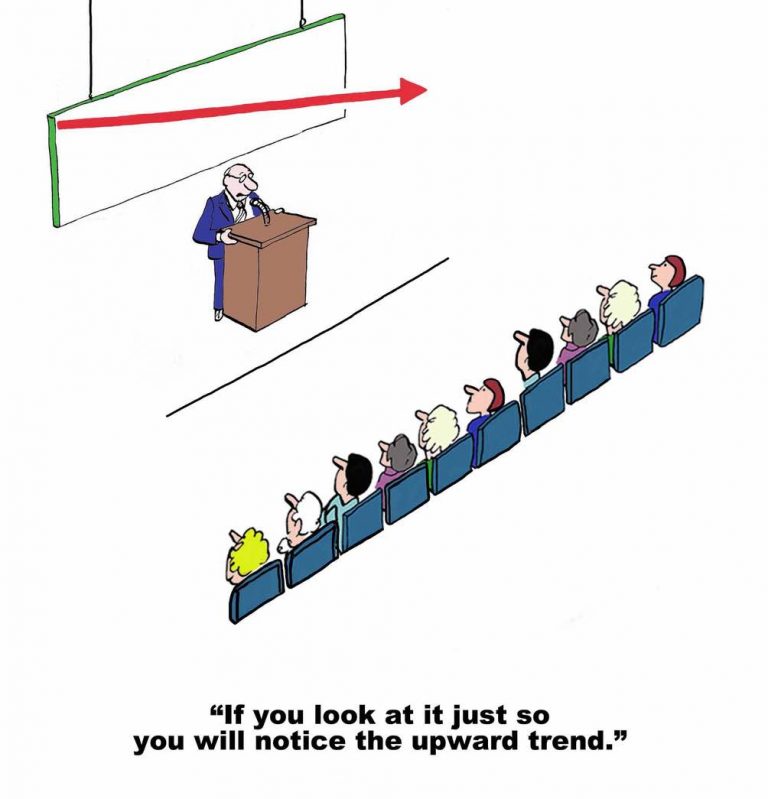
SEC Targets Disclosure Fraud

Under the SEC Whistleblower Program, whistleblowers can obtain a reward for reporting original information to the SEC about violations of federal securities laws, including misleading or inadequate disclosures. We have successfully represented SEC whistleblowers that provided information to the SEC about disclosure fraud.
The SEC has awarded nearly $1.3 billion in awards to whistleblowers. The largest SEC whistleblower award to date, $114 million, was issued to a whistleblower who provided the SEC with key information that led to a successful enforcement action.
If you have information that may qualify for an SEC whistleblower award or have suffered whistleblower retaliation, contact the Director of our SEC whistleblower practice at [email protected] or call our leading SEC whistleblower lawyers at (202) 930-5901 or (202) 262-8959.






All inquiries are confidential. In conjunction with our courageous clients, we have helped the SEC halt multi-million dollar investment schemes, expose violations at large publicly traded companies and return funds to defrauded investors. Our SEC whistleblower lawyers have obtained multi-million dollar SEC whistleblower awards for our clients. Read our tips for SEC whistleblowers.
On September 22, 2022, the SEC charged The Boeing Company and its former CEO with making materially misleading public statements following crashes of Boeing airplanes. According to the SEC’s orders, after the first crash, Boeing and Muilenburg knew that MCAS posed an ongoing airplane safety issue, but nevertheless assured the public that the 737 MAX airplane was “as safe as any airplane that has ever flown the skies.” Later, following the second crash, Boeing and Muilenburg assured the public that there were no slips or gaps in the certification process with respect to MCAS, despite being aware of contrary information. Boeing and the former CEO entered into cease-and-desist orders that included penalties of $200 million and $1 million, respectively.
Gurbir S. Grewal, Director of the SEC’s Enforcement Division stated: “[P]ublic companies and their executives must provide accurate and complete information when they make disclosures to investors, no matter the circumstances. When they don’t, we will hold them accountable, as we did here.”
“Original Information” Based on Independent Analysis
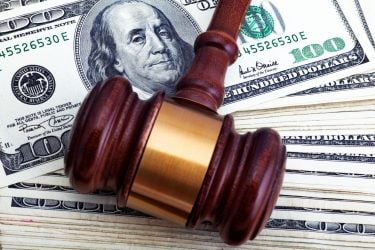
For example, Regulation G and Item 10(e) of Regulation S-K govern the presentation of companies’ non-GAAP financial measures. These regulations require, among other things, that companies using a non-GAAP measure in their filings include:
- A presentation of the most directly comparable GAAP financial measure, with that presentation having equal or greater prominence than the disclosed non-GAAP measure; and
- A reconciliation showing the differences between the non-GAAP measure and the most directly comparable financial measure calculated in accordance with GAAP.
Accordingly, if an investor notices that either requirement is amiss from a company’s filings, he or she may submit a tip to the SEC and be eligible for an award. In early 2016, the SEC issued a $700,000 award to a whistleblower for his or her detailed analysis that led to a successful SEC enforcement action.
SEC Enforcement Actions Based on Deficient Internal Controls
There are many examples of SEC enforcement actions based on inadequate disclosures. These include actions for
- accounting violations;
- deceptive non-GAAP financial measures;
- inadequate internal controls;
- investment fraud; and
- foreign bribery or FCPA violations.
As Warren Buffett has warned, companies are using non-GAAP numbers to artificially boost earnings. We expect to see an increase in SEC enforcement in this area of inadequate disclosures and have brought whistleblower tips to the SEC disclosing the use of deceptive non-GAAP financial measures.
For example, in December 2015, two JP Morgan wealth management subsidiaries agreed to pay $267 million to settle charges that they failed to disclose conflicts of interest to clients. According to the SEC order, the investment advisory business and the bank invested clients in the firm’s own proprietary investment products without properly disclosing this preference. Morgan Stanley was fined $50 million for similar inadequate disclosures in 2003.
On February 14, 2017, the SEC fined groups of investors that failed to properly disclose ownership information during a series of campaigns to influence or exert control over microcap companies. In each of these campaigns, the groups collectively owned more than five percent of the companies’ outstanding common stock, yet the required ownership filings to disclose that information to the investing public were either incomplete, untimely, or altogether absent. The investors agreed to penalties ranging from $30,000 to $180,000.
On May 11, 2017, the SEC announced that the former CEO of MDC Partners, Miles S. Nadal, has agreed to pay $5.5 million to settle charges that his perks were not properly disclosed to shareholders. In public companies, all perks, benefits, and other forms of compensation paid to CEOs and highly compensated executive officers must be disclosed. According to the SEC’s order, Nadal obtained nearly $11 million in perks beyond his disclosed benefits and $500,000 annual allowance. This included Nadal’s personal use of private airplanes, charitable donations in his name, yacht and sports car expenses, cosmetic surgery, and a wide range of other perks. Earlier in 2017, MDC Partners agreed to settle this disclosure failure for $1.5 million.
SEC Whistleblower Rewards and Bounties
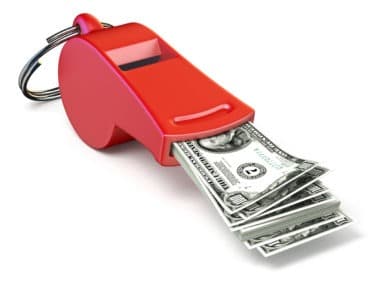
SEC Whistleblower Lawyers
The SEC Whistleblower Program also protects the confidentiality of whistleblowers and does not disclose information that might directly or indirectly reveal a whistleblower’s identity. Furthermore, the Dodd-Frank Act protects whistleblowers from retaliation by their employers for reporting violations of securities laws.
Recently the Association of Certified Fraud Examiners published a profile of Matt Stock’s success working with whistleblowers to fight fraud:
U.S. News and Best Lawyers® have named Zuckerman Law a Tier 1 firm in Litigation – Labor and Employment in the Washington DC metropolitan area in the 2022 edition “Best Law Firms.”
SEC Whistleblower Process to Obtain an SEC Whistleblower Award
Protections for SEC Whistleblowers
Drawing on substantial experience representing corporate whistleblowers in SOX whistleblower cases, our SOX whistleblower lawyers have published a free guide to SOX titled Sarbanes-Oxley Whistleblower Protection: Robust Protection for Corporate Whistleblowers:
whistleblower_lawyers_012017_infographic






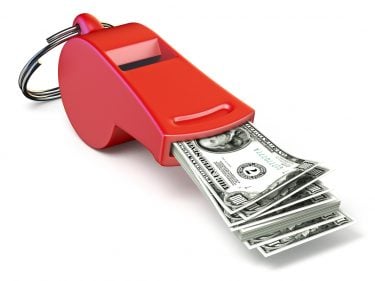
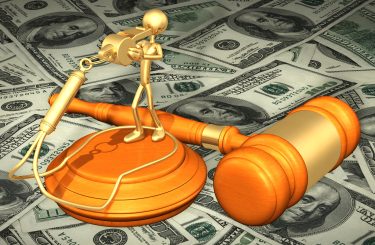
In contrast to most SEC whistleblower law firms, our team includes a Certified Public Accountant and Certified Fraud Examiner with substantial experience auditing public companies and investigating complex fraud schemes.
Attorneys Representing SEC Whistleblowers
Tips for SEC Whistleblowers
SEC Whistleblower Process to Obtain an SEC Whistleblower Award
Protections for SEC Whistleblowers
Overview of the SEC Whistleblower Program
-
What is the SEC Whistleblower Program?
-
Can I submit an anonymous tip to the SEC Whistleblower Office?
-
What employment protections are available for SEC whistleblowers?
-
What violations qualify for an SEC whistleblower award?
-
What types of accounting fraud qualify for an award under the SEC Whistleblower Program?
Whistleblowers Eligible for an Award
-
Who is an “eligible” SEC whistleblower?
-
Can I submit a claim if I had involvement in the fraud or misconduct?
-
Can I submit an SEC Whistleblower claim if the SEC already has an open investigation into the matter?
-
Can I submit a tip if I agreed to a confidentiality provision in an employment/severance agreement?
-
Can compliance personnel, auditors, officers or directors qualify for an SEC whistleblower award?
Reporting to the SEC and Maximizing Award Percentage
-
When is the best time to report the fraud or misconduct to the SEC?
-
Do I have to report a securities law violations to my company before reporting the violation to the SEC?
-
What is “original information”?
-
How might my information “lead to” a successful SEC enforcement action?
- How do I submit a tip to the SEC?
-
What type of evidence should I provide to the SEC?
-
What factors does the SEC consider when determining the amount of the award?
-
Why should I choose the Zuckerman Law to represent me in my SEC whistleblower claim?
After Reporting to the SEC
-
What happens after I submit a tip to the SEC?
-
How long does it take to receive an SEC whistleblower award?
To learn more about the SEC Whistleblower Program, download Zuckerman Law’s eBook: SEC Whistleblower Program: Tips from SEC Whistleblower Attorneys to Maximize an SEC Whistleblower Award:
SEC Whistleblower Protection Lawyers
The SEC whistleblower protection lawyers at Zuckerman Law have represented CEOs, CFOs, in-house counsel, partners at audit firms and other senior professionals in high-stakes whistleblower matters. Click here to read reviews and testimonials from whistleblower clients.
Drawing on our substantial experience representing corporate whistleblowers, we have published a free guide to SOX titled Sarbanes-Oxley Whistleblower Protection: Robust Protection for Corporate Whistleblowers:
Click here to learn more about anti-retaliation protections for SEC whistleblowers under the Dodd-Frank Act and Sarbanes-Oxley Act.
whistleblower_lawyers_012017_infographic
International SEC Whistleblower Attorneys: Representing Whistleblowers Worldwide

The leading international SEC whistleblower lawyers at Zuckerman Law have extensive experience representing SEC whistleblowers both domestically and internationally. If you have original information about a potential violation of the U.S. federal securities laws, contact an international SEC whistleblower attorney at leading SEC whistleblower law firm Zuckerman Law for a free, confidential case review by calling +1 (202) 930-5901 or +1 (202) 262-8959.






We also help whistleblowers worldwide report money laundering to FinCEN under the recently enacted Anti-Money Laundering Act whistleblower rewards program.
We can help you report anonymously and qualify for an sec whistleblower awards for whistleblowers outside US. The largest SEC whistleblower awards to date are $279 million, $114 million and $110 million.
In FY 2021, the successful whistleblowers recognized by the Commission hailed from six continents. In total, approximately 20% of the meritorious claimants in FY 2021 were based outside of the United States.
The SEC continues to vigorously combat fraud around the world when it harms U.S. investors or undermines market integrity. In April 2022, the SEC announced the indictment of 16 defendants, based in the Bahamas, the British Virgin Islands, Bulgaria, Canada, the Cayman Islands, Monaco, Spain, Turkey and the United Kingdom, for participating in multi-year fraudulent penny stock schemes that generated more than $194 million in illicit proceeds. The SEC investigations that led to these indictments were assisted by securities regulators and other law enforcement authorities in more than 20 countries, and y whistleblower awards outside the U.S. for these allegations.
Since the inception of the SEC whistleblower program, the SEC has received whistleblower tips from individuals in approximately 133 countries outside the United States. In FY 2021 alone, the SEC received whistleblower submissions from individuals in 99 foreign countries.
In September 2020, the SEC issued awards to two whistleblowers for reporting violations occurring overseas. The press release announcing the awards notes the important contributions of whistleblowers:
“Misconduct occurring overseas can have a major impact on U.S. markets while at the same time remaining hard to detect. Today’s awards demonstrate the unique ability of whistleblowers to help the SEC uncover and pursue these cases,” said Jane Norberg, Chief of the SEC’s Office of the Whistleblower.
SEC Whistleblower Program: Process to Qualify for an SEC Whistleblower Award
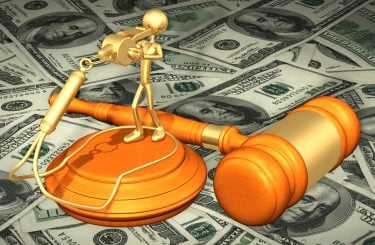
Since 2012, the SEC Whistleblower Office has awarded more than $1.3 billion to whistleblowers. According to the Corruption Perceptions Index, a majority of countries are making little or no progress in ending corruption. As the SEC Whistleblower Program continues its worldwide outreach, we expect to see an increase in both tips and awards to international whistleblowers.
Visit the Visit the SEC website for press releases. For more information about the success of the SEC Whistleblower Program, see our column in Forbes: One Billion Reasons Why The SEC Whistleblower-Reward Program Is Effective. Also, click below to hear SEC whistleblower lawyer Matt Stock’s tips for SEC whistleblowers:
Recently the Association of Certified Fraud Examiners published a profile of Matt Stock’s success working with whistleblowers to fight fraud:
Do Whistleblowers need U.S. Citizens to be eligible for SEC Whistleblower awards?
No, Whistleblowers need not be U.S. Regardless of citizenship, whistleblowers who provide original information that leads to enforcement actions with total monetary sanctions of more than $1 million may be eligible for an award of between 10% and 30% of the total sanctions imposed.
Since the beginning of the whistleblower program, submissions to the SEC have come from whistleblowers in 130 countries outside of the United States. In 2020 alone, the SEC received tips from whistleblowers in 78 foreign countries. The SEC Whistleblower Office has received the highest number of tips from whistleblowers in the:
- United Kingdom,
- Canada,
- Germany,
- China,
- India, and
- Australia.
One of the largest awards to date – more than $30 million – was issued to a whistleblower living in a foreign country.
How to Qualify for an SEC Whistleblower Award
To qualify for an SEC Whistleblower Award, provide original, high-quality information on securities fraud that leads to sanctions over $1 million. To maximize your chances, act fast, protect your identity, know the rules before filling with the SEC, and submit a well-drafted tip. For guidance, consult an SEC whistleblower attorney, as Zuckerman Law, to ensure eligibility and maximize your reward potential.
What violations qualify for an award from the SEC Whistleblower Program?
Any violation of U.S. federal securities laws qualifies for an award under the SEC Whistleblower Program, including:
- Accounting fraud;
- Investment and securities fraud;
- Insider trading;
- Foreign bribery and other FCPA violations;
- EB-5 investment fraud;
- Manipulation of a security’s price or volume;
- Fraudulent securities offerings and Ponzi schemes;
- Hedge fund fraud;
- Unregistered securities offerings;
- Investment adviser fraud;
- Broker-dealer anti-money laundering program violations;
- False or misleading statements about a company or investment;
- Inadequate internal controls;
- Deceptive non-GAAP financial measures;
- Improper revenue recognition;
- Violations of auditor independence rules; and
- Blockchain fraud.
Can I submit an anonymous tip to the SEC Whistleblower Office?

For more information about the SEC Whistleblower Program, download the eBook Tips from SEC Whistleblower Attorneys to Maximize an SEC Whistleblower Award and listen to the recent podcast episode of inSecurities Inside the World of Whistleblowers.
Whistleblower Protection for U.S. Employees Working Abroad
In addition to representing whistleblowers before the SEC, CFTC and IRS, we represent corporate whistleblowers in retaliation claims, including claims brought under the following laws:
- Sarbanes-Oxley whistleblower retaliation claims;
- False Claims Act retaliation claims;
- Consumer Financial Protection Act retaliation claims; and
- NDAA retaliation claims.
For more information about the SOX whistleblower protection law, download our free guide Sarbanes-Oxley Whistleblower Protection: Robust Protection for Corporate Whistleblowers.
Frequently Asked Questions About the SEC Whistleblower Program
- What is the SEC Whistleblower Program?
- What is the SEC Office of the Whistleblower?
- What are the largest SEC whistleblower awards?
- Can I submit an anonymous tip to the SEC Office of the Whistleblower?
- What exactly does anonymous whistleblowing entail?
- What employment protections are available for SEC whistleblowers?
- What violations qualify for an SEC whistleblower award?
- Can the SEC bring enforcement actions against international schemes?
- Who is an “eligible” SEC whistleblower?
- Can compliance personnel, auditors, officers or directors qualify for SEC whistleblower awards?
- Can I submit a claim if I had some involvement in the fraud or misconduct?
- Can culpable whistleblowers qualify for SEC whistleblower awards?
- Do I have to report a potential violation to my company before reporting it to the SEC?
- What type of evidence should I provide to the SEC?
- Can I use confidential company documents to expose fraud?
- Can I disclose secret recordings to the SEC?
- Can I submit a tip if I agreed to a confidentiality provision in an employment/severance agreement?
- When is the best time to report the fraud or misconduct to the SEC?
- What is “original information”?
- Can I submit an SEC Whistleblower claim if the SEC already has an open investigation into the matter?
- How might my information “lead to” a successful SEC enforcement action?
- What “related actions” qualify for an SEC whistleblower award?
- How do the best SEC whistleblower law firms advocate for whistleblowers?
- How do I choose the best whistleblower attorney?
- Why should I choose the Zuckerman Law to represent me in my SEC whistleblower claim?
- How do I submit a tip to the SEC Office of the Whistleblower?
- What happens after I submit a tip to the SEC?
- What factors does the SEC consider when determining the amount of the award?
- What happens after I apply for an SEC whistleblower award?
- How long does it take to receive an SEC whistleblower award?
SEC Whistleblower Law Firm Representing Whistleblowers Internationally

The firm has a licensed Certified Public Accountant and Certified Fraud Examiner on staff to enhance its ability to investigate and disclose complex financial fraud to the SEC, and two of the firm’s attorneys served in high-level positions at a government agency that protects whistleblowers. Firm Principal Jason Zuckerman has been named by Washingtonian Magazine as a “Top Whistleblower Lawyer” and the firm has been ranked by U.S. News as a Tier 1 Firm in Labor & Employment Litigation.
To learn more about the SEC Whistleblower Program, see the following resources:
- Tips for SEC Whistleblowers
- See our column in Going Concern: Sarbanes-Oxley 15 Years Later: Accountants Need to Speak Up Now More Than Ever.
- See our post in Accounting Today: Whistleblower Protections and Incentives for Auditors and Accountants.
- See our article providing Tips for SEC Whistleblowers
- See our post in The Compliance and Ethics Blog: Shkreli Trial Reveals the Challenges Faced by Compliance Whistleblowers.







